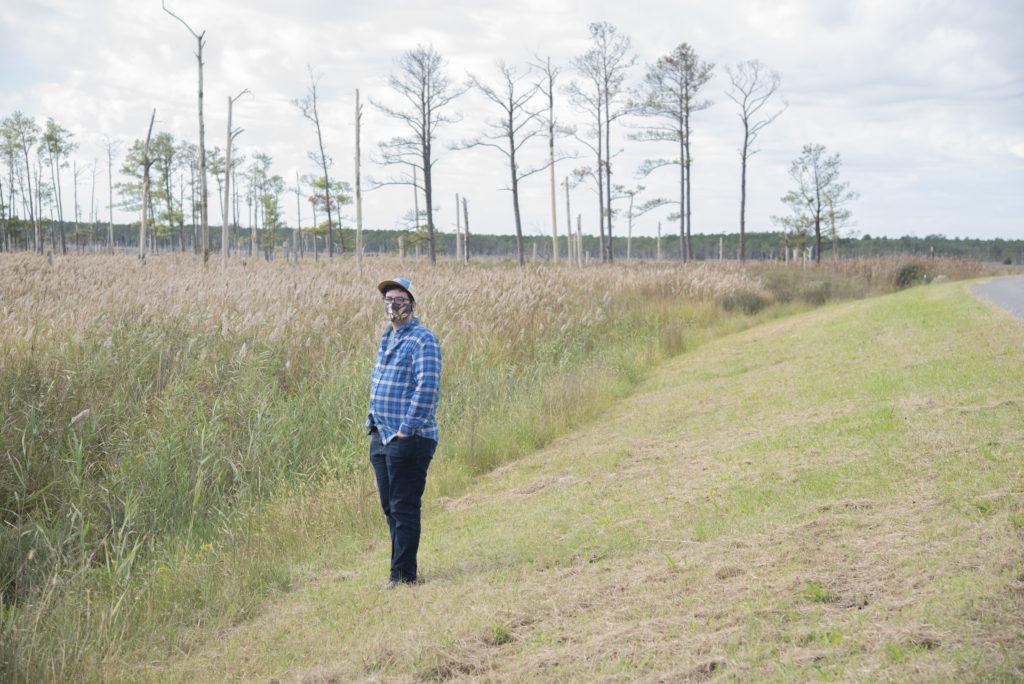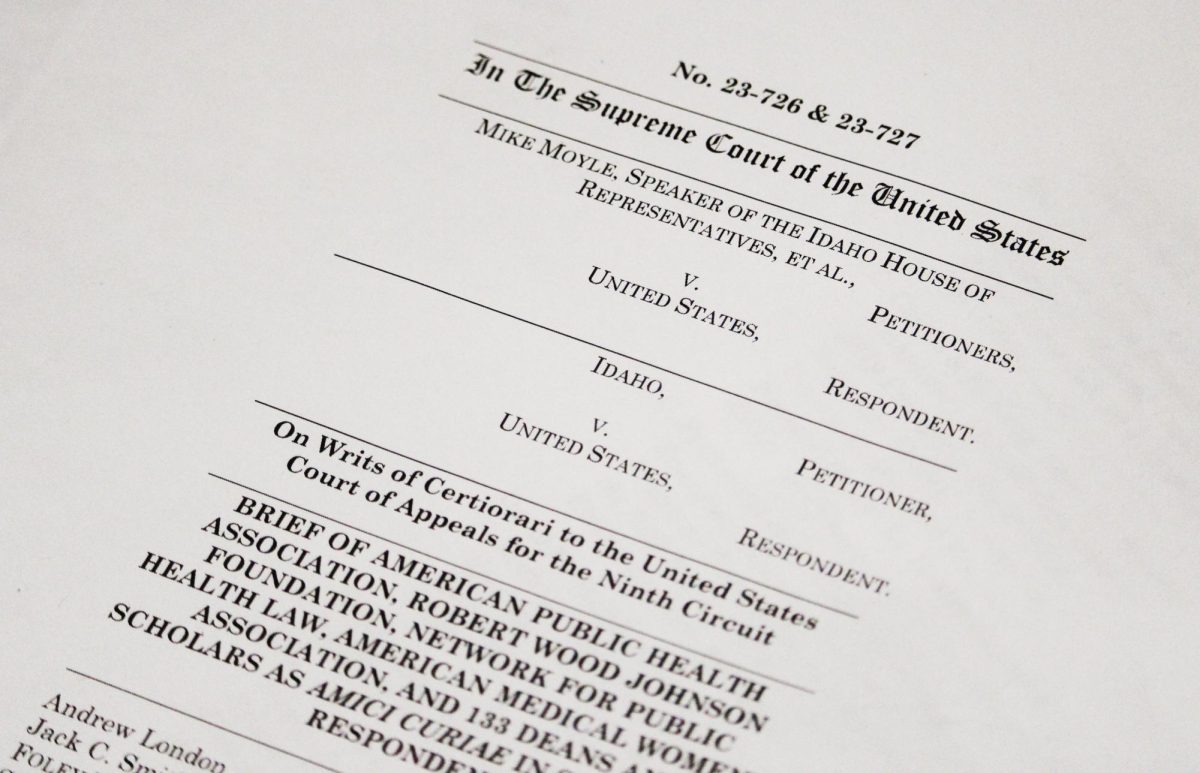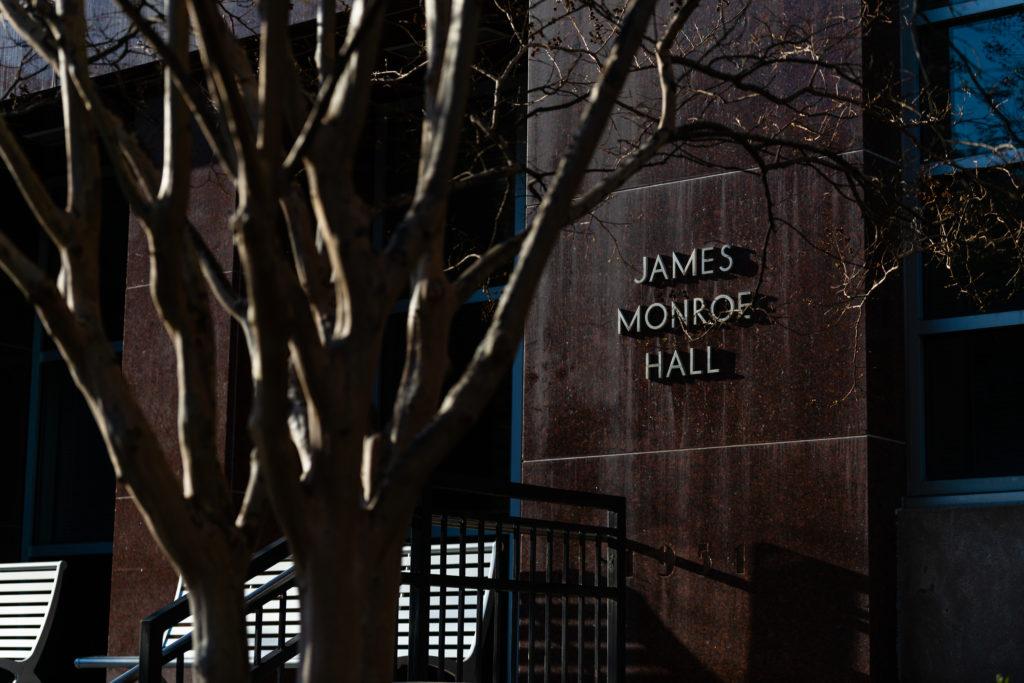Undergraduate students are able to learn how to recreate healthy ecosystems in damaged and polluted areas on campus through a new ecology course this semester.
Sustainable GW announced the course in the biological sciences department last month called Restoration Ecology, which will teach students how to prevent invasive plant and bug species from damaging the environment and overgrowing in nearby ecosystems. Ezra Kottler, a doctoral student teaching the course, said they want students to first learn the natural biological processes of a healthy ecosystem before using these lessons to restore areas facing human disturbance from activities like mining, pollution and agricultural practices.
“I hope that they will gain a better understanding of the interactions between all these different natural processes and human processes that contribute to what our landscape looks like,” they said.
Kottler said students will search for locations on campus in need of restoration as part of their final projects through BioBlitz, a Sustainable GW project that aims to apply sustainable practices to damaged areas on campus. They said students who participate in BioBlitz will propose ecological restoration projects to revive campus locations, which could become capstone projects that new and incoming students will continue to develop in the sustainability program.
“It’s a challenge bridging the theory to the applied, and working with the sustainability program is really helping me to show those real world issues in the context of the course,” Kottler said.
They said the course will also feature guest lecturers like Amy Langston – the natural resources program director at the Mojave Desert Land Trust, a nonprofit organization preserving the Mojave Desert ecosystem – who will share their experiences working with nongovernmental organizations on restoration projects.
They said the course will count toward the sustainability minor launched in 2012, and students in the course will work closely with Sustainable GW to advance the University’s campus-wide sustainability initiative. The initiative aims to encourage intellectual discourse on policies and technologies that can contribute to a sustainable future, like reusing rainwater to hydrate plants on campus, according to Sustainable GW’s 2018 Sustainability Progress Report.
Kottler said they are collaborating with Tara Scully, the director of the sustainability minor program, to create a closer tie between Restoration Ecology and ongoing initiatives at Sustainable GW.
“I’m working with her to incorporate this course into what’s already being done in the sustainability office and in some of the Intro Sustainability to maximize the quality of the experience the students were getting out of it,” they said.
In line with its sustainability goals, the University committed to eliminating single-use plastics last March and decreasing carbon emissions with solar panels installed on five campus buildings last May.
Charlie Hertz, a junior majoring in molecular cellular biology, said he’s “excited” to apply the ecology lectures’ teachings in the final project because GW offers few opportunities for biology majors to test biological theories in real-world environments. He said the course will be a “great opportunity” to interact with other disciplines like ecology and biology.
Hertz said courses like Restoration Ecology could be difficult to teach because of GW’s urban location, which doesn’t provide students with many opportunities to practice sustainable methods in natural environments or nature.
“I feel like it’s tough because ecology is pretty closely related to sustainability in terms of applying what we know, but I think it’s still good to get that lens in people’s eyes regardless,” he said.
Experts in sustainability sciences said incorporating sustainability-focused classes like this course in a curriculum allows students to observe real-world effects, like climate change, on the campus environment and create solutions that can help GW increase sustainability.
David Bennett, the department chair of geographical and sustainability sciences at the University of Iowa, said a course like Restoration Ecology helps students and faculty members learn the biological processes needed to modify ecosystems and ensures GW’s commitment to a more sustainable campus environment.
“Any course that helps us understand natural processes and the degree to which humans have altered these natural processes like modifying ecosystem dynamics is a step in the right direction,” he said.
Gail Lee, the sustainability director of the Office of Sustainability at the University of California at San Francisco, said universities like GW should incorporate these types of courses in their general education requirements to provide critical thinking skills and deter misinformation.
“Future generations will be strongly impacted by what’s happening now in climate change and the contribution that burning fossil fuels will have on that, so that population needs to know and understand what’s happening to the world and be part of the solution,” she said.
Alice Reznickova, the director of the Sustainable Urban Environments program at New York University’s Tandon School of Engineering, said universities like GW need to prioritize allocating enough time and money for faculty to be able to teach sustainability-focused courses like Restoration Ecology because faculty members are often required to design, teach and maintain the courses all on their own.
“These courses are important, and students should be offered the benefits of taking them, which is why I hope universities start to offer money and time to those who do this type of work,” she said.
Meghan Flanagan and Aidan Turley contributed reporting.







